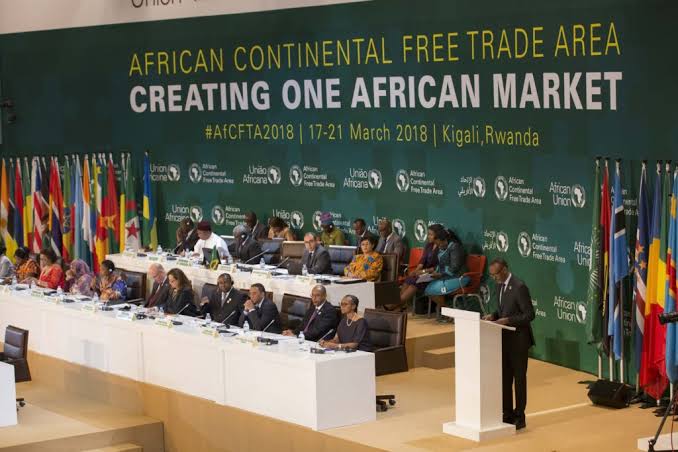The single currency agenda for Africa has been making the rounds at the top levels of the continent's umbrella union - the African Union for quite some time now. Economic and financial policy experts from every African nation state have engaged each other in endless rounds of debates as to whether or not Africa needs to have a uniform currency identity to boost its internal trade volume and satisfy local demand for the most part. Others have argued that a single currency for all member African countries would not stand the test of time if certain fundamental issues peculiar to each country are not dealt with holistically. However, as independent observers and of course partners in Africa's quest for progress as our name implies - Power of Africa, it has become imperative to contribute to this germane economic conversation, weigh the pros and cons of having a single currency, as well as make fair recommendations that could eventually lead to the birth of a new currency for Africa.

The plan to introduce a common currency for Africa is based on the Abuja Treaty that was signed on the 3rd of June 1991 in Abuja, Nigeria. In this treaty, it was decided that an African Economic Community and an African Central Bank would be set up, with a single currency by 2020. As of today, while most countries have not signed the contract, some are calling for the currency to be created at a later date. Some other countries are doing business with currencies from other countries. Thus the agenda of a single currency is still a hypothetical plan and it is not yet clear whether it will become a reality in the near future.
Africa's capacity to provide the necessary manpower to develop the various means of production known to man today is not in question. With the provision of a single currency, it is expected that more local and foreign investments will come in, which would mean more jobs. The transaction costs of buying and selling will also be a lot lesser, as it involves trading with a neighboring country. A single currency will provide stability as it would be used across large trading zones. The currency's credibility will reduce speculations and would help traders project better should they decide to explore and invest in emerging markets. In the best case, a single currency will increase trade among member states. This will make the African Union members more independent of other countries and therefore more sustainable development might happen.
On the other hand, a single currency might not be suitable as the huge differences in terms of the economic performance of participating countries might annul the positive effects of creating the single currency in the first place. A single currency being managed by one central bank will prohibit the nation states from devaluing their currency, and if not done will cause recession, which will damage the economy even more. Also, the central bank in charge of the single currency will not only be responsible for managing the value of the currency but also the inflation rate that will be set for every member state in the union. Due to the differences in inflation rates, countries with low inflation might be forced to cooperate with those battling with high inflation. As a result, there would be huge trade-offs that might impede currency value and cause high unemployment.
To mitigate the adverse effects of creating a single currency and to strike a balance with the promising advantages of such a cause, the African Union must obey its own fundamental principles for which it was primarily set up, particularly that which has to do with economic integration. Citizens of member nations must be able to move freely from place to place in Africa in order to conduct their business - whether to buy, sell or to work. This way labour will always be where it is needed and trading will be hassle free.
Member nations must have a similar diversified production and export structure. This is important to ensure that each country is self sustaining and less dependent on the other. Also, member nations must integrate each other into their trade policies so as to trade heavily with each other and ensure that the uniform currency value becomes fairly optimum.
Furthermore, member nations must agree to offer compensation (in terms of free interest loans, concessions and aid packages) to each other in cases of an adverse economic shock. If one country suffers from a shock, the other ones will be willing to compensate the ailing country. And lastly, as a matter of principle, the union's monetary policy must not give rise to conflicts of national interest. In cases where this might occur, every country trading with that single currency must bear the cost of this conflict.
A stable and common currency can foster economic growth and therefore result in higher sustainable development. However the African Union has to pay attention to their fundamental challenges first (conflicts, uneven wealth distribution, low intra-African trade, low diversification in the economy, bad governance etc) in order to implement a successful single currency agenda.
